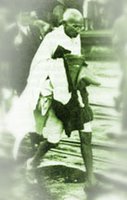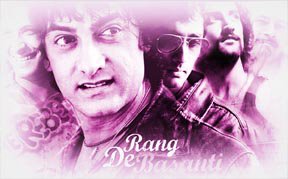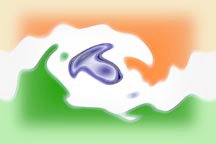
Some of the things Mahatma Gandhi (MK Gandhi) did are quite complicated to many people. They seem to be contradictory or conflicting in nature. According to me, Gandhi is a miserable failure. He set out to achieve one of the biggest tasks in the history of mankind and failed miserably. According to me, it was the biggest challenge any human has ever undertaken – he actually believed that he could convince people (humans) to live amicably, respecting each other’s differences and tolerating diversity, forever. In some respects, his goal was far greater than any other prophets who came before in time. Mohammed united a bunch of war-mongering, women-grabbing tribes under a single banner called Islam. He taught them to love, respect and treat each other equally; and to ensure that they keep doing this after he is gone he laid out many rules. He was a bit of authoritarian in his style- he wanted no debates on certain rules; may be, he saw some flaws in previous systems (read, religions) and hence he want to make a foolproof system. He realized that as long as people are alike, they will love each other and would not make war, nor kill each other, nor insult each other, and therefore wanted to make sure all people are turned (or converted) to be alike. This, he thought, would solve all problems. His algorithm went this way-
Rule 1. People love other people only if they are of same kind
Rule 2. Make all people alike.
Rule 3. If some resist, use all means necessary to make them alike.
Rule 4. If someone questions any of the above, he is not alike (apply Rule 2 & 3).
This he thought would ensure that there is only one system in the world and hence would solve all the problems. He wasn’t that magnanimous when it comes to people of other kind. He just did not want to deal with the issue of diversity. He wanted to make it simple. For his algorithm to work, he knew clearly that Rule 2 has to be achieved in totality, no matter what. He realized that it could be trouble if there exists another strong and big group who are not alike. This would upset the whole algorithm because Rule 3 may not be applied with success all the time. So, he took strong care to mention in strong words different aspects of Rule 3 and felt that that was good enough to make system work. Unfortunately, other systems also developed similar kind of rules, became big groups of different kind and posed a challenge to this algorithm. Rest, as they say, is history!
Lets take another prophet- Jesus Christ. He was not as clever. He did not devise an elaborate algorithm. He didn’t want to set rules. He just wanted to love, be loved, and teach everyone else to love each other. I guess he was quite a romantic guy. I don’t think he ever wanted to create a system (read, religion). He was just a happy-go-lucky, lets-be-merry kind of guy but was deeply troubled when he realized that there was lot of hatred and animosity amongst people. He saw how certain kind of people treated other kind of people badly. He was against this discrimination. In some way, he believed in the modern day kind of constitutions that like to, or at least pretend to, treat every one equal irrespective of sex, religion, race, language, etc. When he saw too many problems around him, he came up with a simple and elegant solution. He thought – ‘Let love prevail!’ He went about preaching the same. He was hoping that everyone would love each other and would not care about their differences and hence would live happily ever after. But for some reason, people did not care much for his message after he was gone. But there were some who realized that it was in their interest if people were alike – it was much easier to rule them, much easier to influence them, etc. Therefore they devised a system built upon his message and enforced it onto others so that they all learn to love. In my opinion, though his message was clear, and he went about practicing it, he had not quite understood the inherent diversity in the people, and didn’t address it properly– other than the message of love. But he had lot of success to his credit. In few hundred years, his message got translated into a system with rules called Christianity. He had few things going easy for him though- he was focusing on a small geographical area that was not as diverse as the modern India and there were not many big systems (religions) that could pose challenges.
One could talk about other prophets, but the story runs similar.
Gandhi had a huge and daunting task for himself. He had to face much more diverse set of people compared to any of the prophets above. His method was different - he did not want to eliminate those diversities. He inherently believed that people are always different. He didn’t want to change others. His message was clear- change yourself to learn to love and respect the other although he is quite different from you. He was hoping that different groups who have strong systems and algorithms would modify some of their steps/rules to be accommodating to others. He wanted people to co-exist peacefully. In fact, he had the biggest, most diverse and most complicated experiment grounds to work on compared to any of the prophets above. He hoped that the only way to go about is to create some principles which when practiced by different people would achieve the above loftier goal. Instead of introducing new systems, he worked with the existing systems and algorithms, and hoped to bring out similarities in each of them. This was a complex problem of gigantic proportions. Many people, who were used to their systems, felt theirs was superior from others and hence would not budge to see his message. All in all, he went on conducting his experiments throughout his life, laid out guiding principles, practiced them and preached them. However, his message was soon lost on different groups who wanted to be the way they were- and didn’t want a half-naked fakir teaching them how to be tolerant of others. They thought- ‘If someone has to exist with us, let them change, we are fine the way we were’. Soon his system crumbled, and the world was as before- different warring groups constantly fighting as ever. He set out to achieve highest of the goals, and failed, miserably.
Once we realize what he was striving for, I am hoping that most of his actions could be easily explained. When he started Non-cooperation movement, he knew that he was asking a bunch of young doctors to perform a crucial surgery. He was hoping they would be disciplined enough to actually pull this off, but when he entered the operation theater, he saw bunch of unruly youngsters bickering about and throwing scissors into the air. He had to call it off that day so that they can all come back to this surgery later. He knew that if he went ahead with it there was a danger that patient may actually die. He called off the Non-cooperation movement because he saw that India would be broken into pieces if it became independent right away. The people, administrators, the future rulers were just not ready yet. Ruling India was a far complicated problem than anyone imagined.
All the while, during the Independence movement, the biggest challenge for him was not the Independence itself. Actually it was ranking #17 in his list (I am just making up this list to drive my point). He had 16 other things of higher priority. First was to ensure that India remains one. If it breaks up, his goal (see above – to achieve unity amongst diverse people) is not realized. He wanted different religions to live together. He wanted different castes to treat each other with respect. A great deal of time was spent to bring untouchables, lower castes into the mainstream. He wanted women to be treated properly. He wanted us to practice good hygiene, good sanitary conditions. He wanted us to depend less on other kind of people because that created the difference in social structure, and hence asked us to clean our toilets, make our own clothes, etc.
Many a times, he called off some of his movements because half way through the operation, he started to realize that the operation (cutting of the tumor) might be successful, but the patient may eventually die. Therefore, he called it off, much to the dismay, disappointment, disillusionment that led into resentment amongst those young doctors. It created many disgruntled doctors- Bhagat Singh, Chandrasekhar Azad, Subhash Chandra Bose, etc.
His concern was not ‘when’ but ‘how’ would India get its independence? What would happen right after achieving complete freedom? Would we fight amongst ourselves? Would Hindus fight the Muslims? What kind of bloodshed would it be? He roughly calculated on a piece of paper that it would be more than 100 Million in deaths (I am making this up to drive my point). Would the untouchable still remain untouchable? Would women be freer? Would our youngsters be unruly mob demanding things or would they discipline themselves to work towards better administration? Would every king in every corner make a country of his own or would they join India?
When Bhagat Singh was convicted of a murder Gandhi had to deal with a complicated problem. Should he pardon Singh’s means and methods? By condoning Singh’s acts is he not setting a wrong example to the other youth? Is it the kind of India he envisions? When British leave, would there be law and order, or would it be chaos? Would we be assassinating others, or would we be working with the system?
The answers are easy to come – if you go see his ultimate goal above.
When India got its independence, his goal was not realized, because many of his top 16 priorities were not achieved. He was sad for various failures. India was partitioned – this meant that two religions would not wish to live together – his ultimate goal not achieved. Its leaders were chanting venomous slogans against other groups, they were not treating its citizen equal and they were bickering and fighting. He knew he failed and hence he was disappointed. Moreover, they were not listening to him any more- neither the leaders nor the people. He was no longer a Mahatma to them. He died, knowing that his message was not heard, that he failed in the grandest experiment ever designed in the history of mankind!

